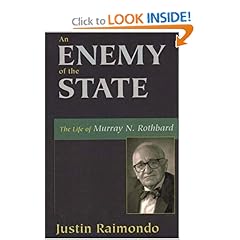I’ve mentioned, I think, certain cases where the “free market’s” alleged promise to reward the worthy has been lauded beyond reality. In my opinion it is a mistake to try to defend the free market against government interference (i.e. theft, fraud, kidnapping, threatening) in the name of the “fairness” of the outcomes in a free-market (which is really redundant anyway) situation.
Does this mean that it is OK for the government (or anyone else) to take from someone and give to others?
Of course, not.
Lets take a look at all the married couples who want children and divide them up between those who have children and those who don’t. Obviously, in very few cases is the difference due to a different ethical commitment. Lots of married couples have the children they want while a few others cannot get pregnant through no fault of their own (yeah I know their may be other kinds of married couples in an age of legalized abortion and dual-career families, but lets just take the case of the couples that always wanted and failed to conceive).
So we all acknowledge that those families with children are not to be credited with some greater moral effort than another group of families that are all childless.
Does this justify Obama using an executive order to draft a certain number of children from the families with the most and assigning them for adoption by the families without any children? (Of course, it would be an unconstitutional usurpation of powers, but that means nothing. At most the Supreme Court might flip a coin and decide that Congress has to approve).
Bottom line is that it doesn’t matter whether you deserve anything, whether eight children or none–the President should butt out of even addressing the situation. It is not up to him, the Congress, the army, or any number of opinion polls to settle “child-per-family-fairness.” The government can go to hell. Get away from our families.
We all know this is true and yet we act like other possessions are different. It is wrong to take babies away from families to give to childless couples, but it is OK to take the excess money some have to help families without money. Well, this won’t convince secular readers, but for God this is all the same issue:
You shall not covet your neighbor’s house; you shall not covet your neighbor’s wife, or his male servant, or his female servant, or his ox, or his donkey, or anything that is your neighbor’s (Exodus 20.17).
So we don’t need to pretend that the outcomes are the result of some infallible process (“hard work” “competition,” “survival of the fittest,” etc). It doesn’t matter (and none of that would be reliably true anyway). We don’t have to insist that anyone is more worthy than anyone else because of what he has (again, not true). We don’t have to dispute over the role of luck or inheritance or anything else (which is usually immense).
The ethics don’t depend on any of this: Hands off.
